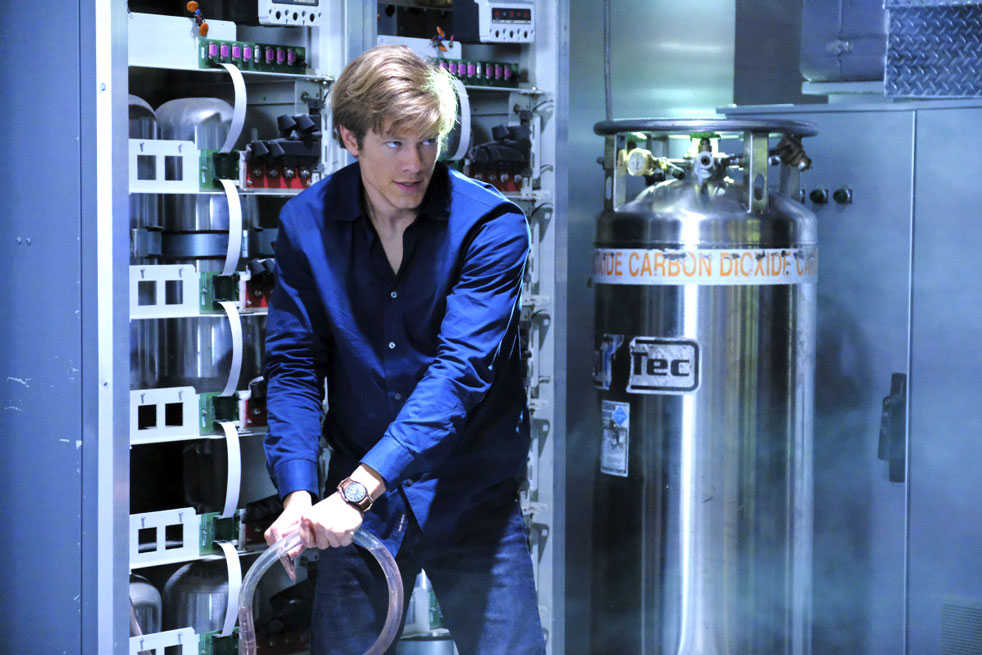Joining “RoboCop,” “Lethal Weapon,” “The A-Team” and plenty of other shows, “MacGyver” resurfaced after its debut in the ‘80s in the form of a modernized reboot.
This classic TV show, about a government agent doing generic spy-like things while hacking together spare junk to save the world, aged surprisingly well. CBS began airing the show’s second season on Friday, Sept. 29.
Despite having a similar premise and episode structure, the reboot has made a rather large number of changes. The maintained episode structure begins with the most intense moment of a mission then proceeds to elaborate on a subsequent, far less interesting mission for the rest of the episode.
One of the most notable changes is that Angus MacGyver (Lucas Till, “X-Men: First Class”) now works with a regular team for each of his missions instead of having the occasional partner. This team is comprised of four people (and occasionally their boss) who each disregard reality in their own unique manner.
The costume designer can be excused due to the nature of the show. One can hardly blame television or movies for following the trend of treating technology in general and cracking in particular like black magic, but Jack Dalton (George Eads, “Young Justice”) has no such excuse.
Eads’s character seems to have been hit a few too many times between season one and two, and MacGyver’s trusted friend now serves as little more than a vehicle for further explanation. Jack’s contributions during missions are limited mostly to “Punch it” and “Punch it again.”
If it were not for season one and Eads’s other works, one would be left wondering if this were the fault of the script or the actor. The second episode of this season allows for a little more range, but the episode still boils down to violence without thought.
By far, the best resistance to logic comes from MacGyver himself, whose frequent voice-overs explain how he turns scraps into fully functional plot devices and other necessary gadgets. With the right mindset, it can even be quite humorous to watch MacGyver’s joyous — yet usually entirely unnecessary — dismantling of smartphones.
This phone obsession is back in full force for season two. In the first episode, MacGyver finds it necessary to take the cover off of a phone in order to hide it and its camera in a cloth ball, which would have worked just as well with an intact phone.
Once viewers get used to ignoring the voices in their heads that scream about the lunacy of it all, the show is borderline decent. The first season’s overarching plot, centered on Nikki Carpenter (Tracy Spiridakos, “Revolution”) and Patricia Thornton (Sandrine Holt, “Mr. Robot”), was interesting while it lasted but ended long before the season did.
The show could now benefit greatly from some main plot to tie together the extraordinarily modular episodes. At this point, the episodes could probably be reordered without too much
inconsistency.
With the assassin escaping at the end of the first season, one would logically assume that the second season’s overarching plot would be focused on Murdoc (David Dastmalchian, “Ant-Man”), a madman particularly interested in MacGyver’s tendency to defy defeat against all odds.
Instead, the first episode briefly explores MacGyver’s missing father before proceeding as though an assassin were not on the loose. Based on a henchman’s ill-advised one-liner, the missing father and escaped assassin could be related. However, this connection may simply be speculation due to the show’s lack of narrative coherence.
The second season is currently scheduled for 22 episodes, and amusingly the show displays no signs of remorse for its artistic views of the laws of physics and common sense.
